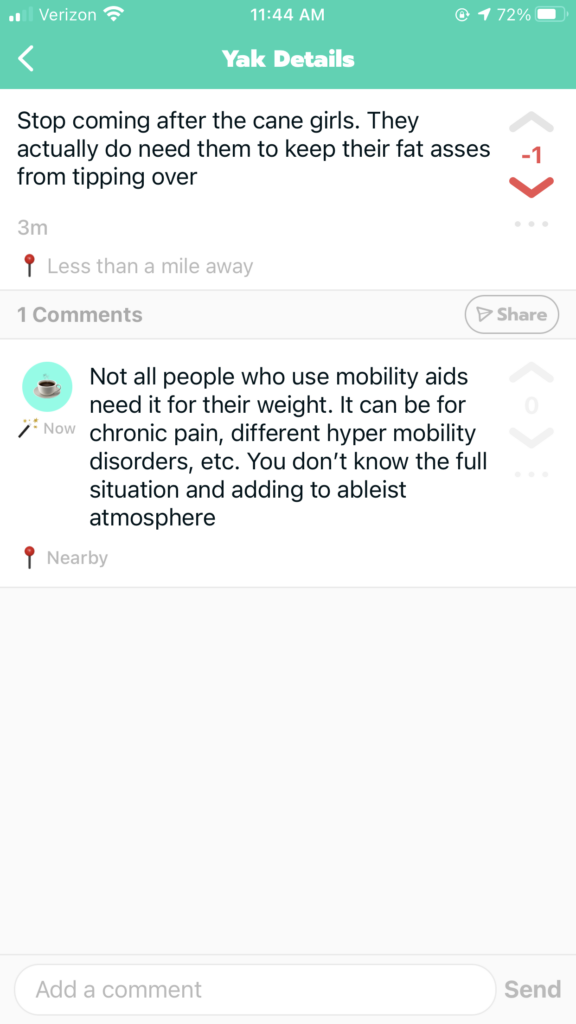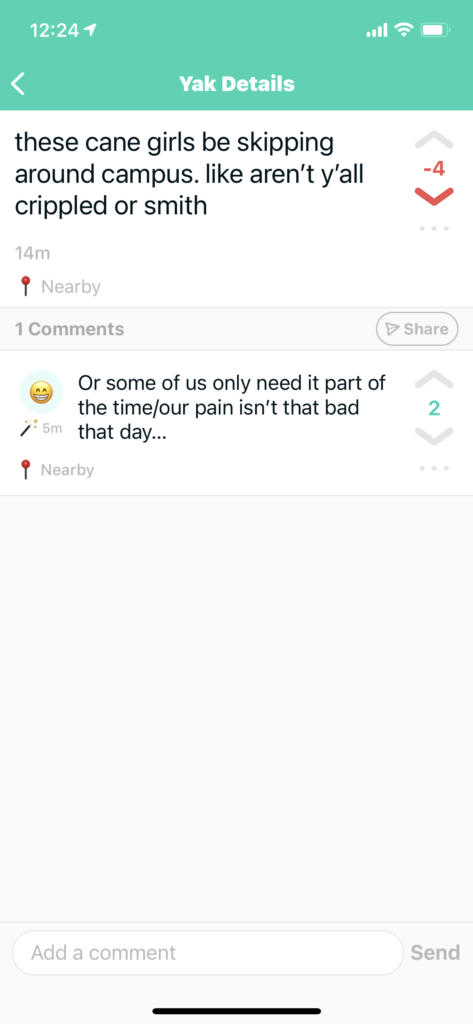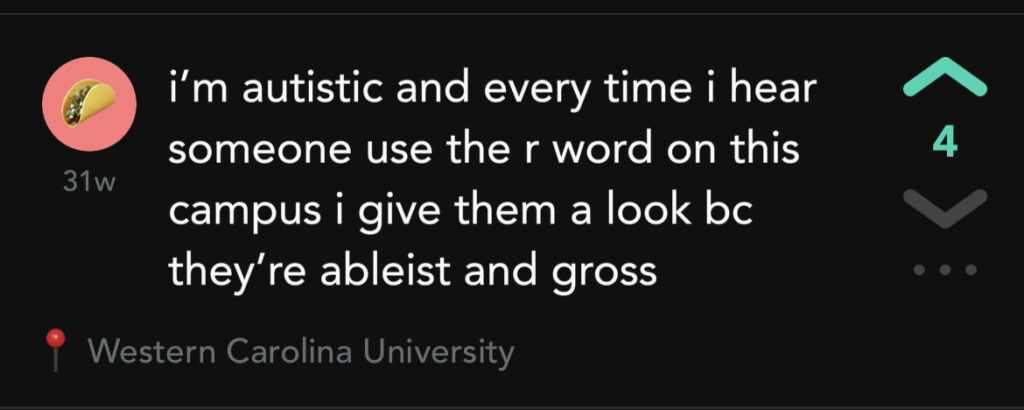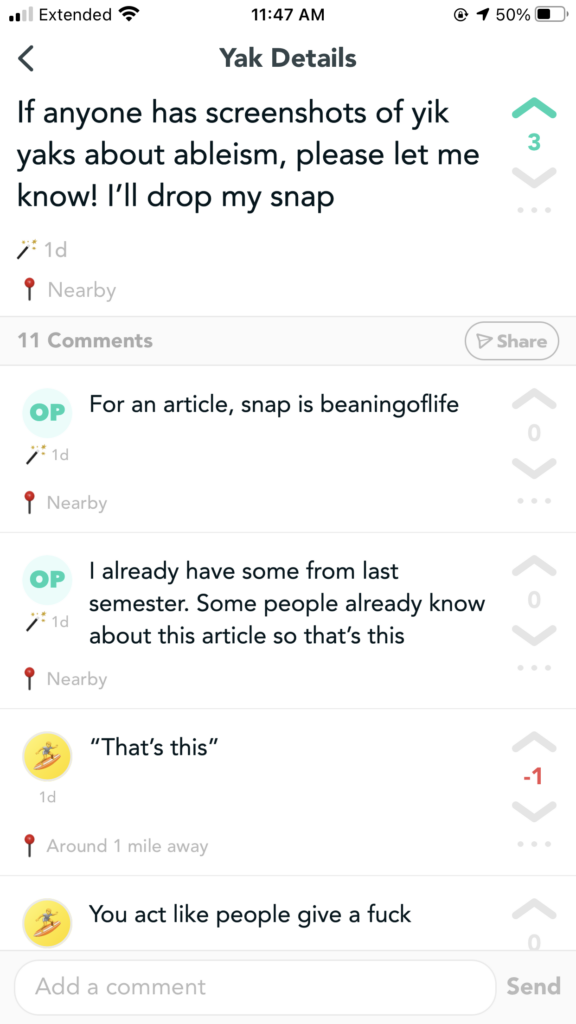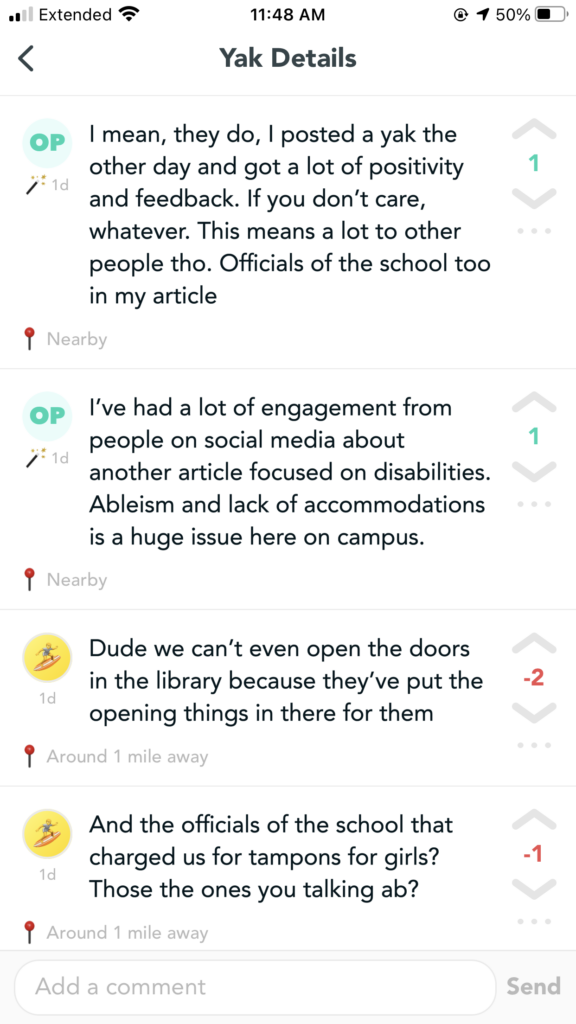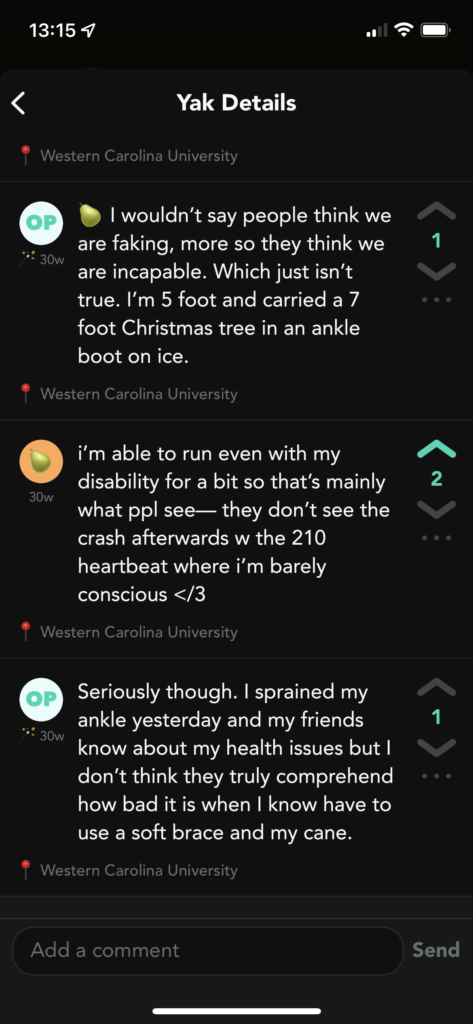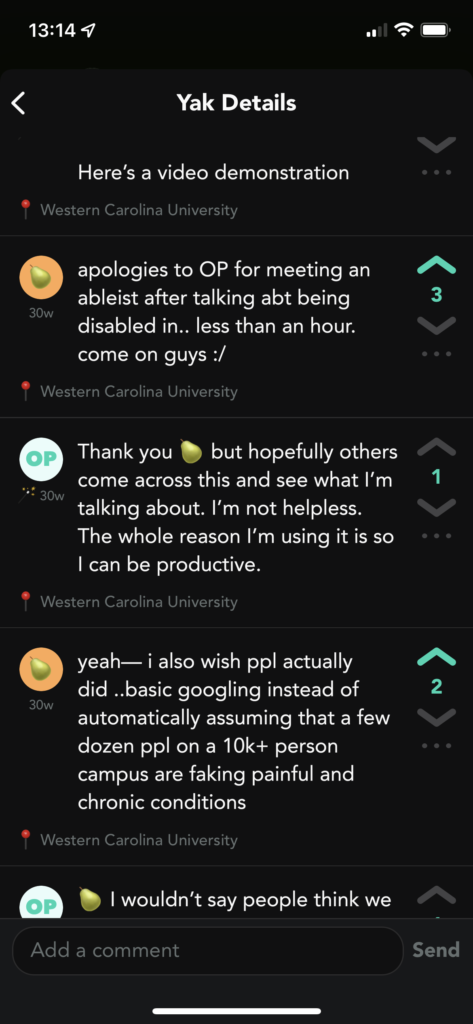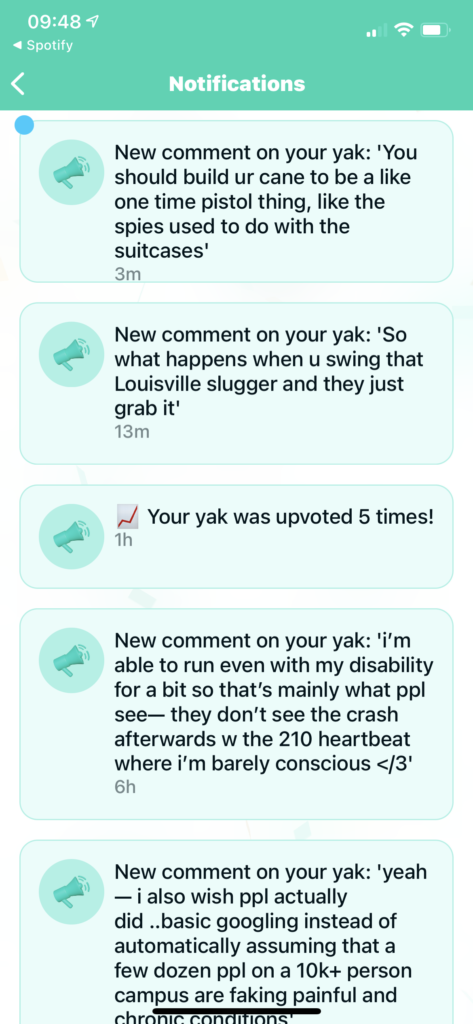Co-written with Jessica Stephens
At first glance, Lennox Shuttleworth (they/he/she) may seem like the average college student, but their life story will tell you much more. They have their good and bad days, but unlike most students, it is because of the torturous pain and fear of being a queer, disabled person.
Shuttleworth lays huddled in a blanket while telling their story through chattering teeth in my Harrill dorm room during the fall 2021 semester.
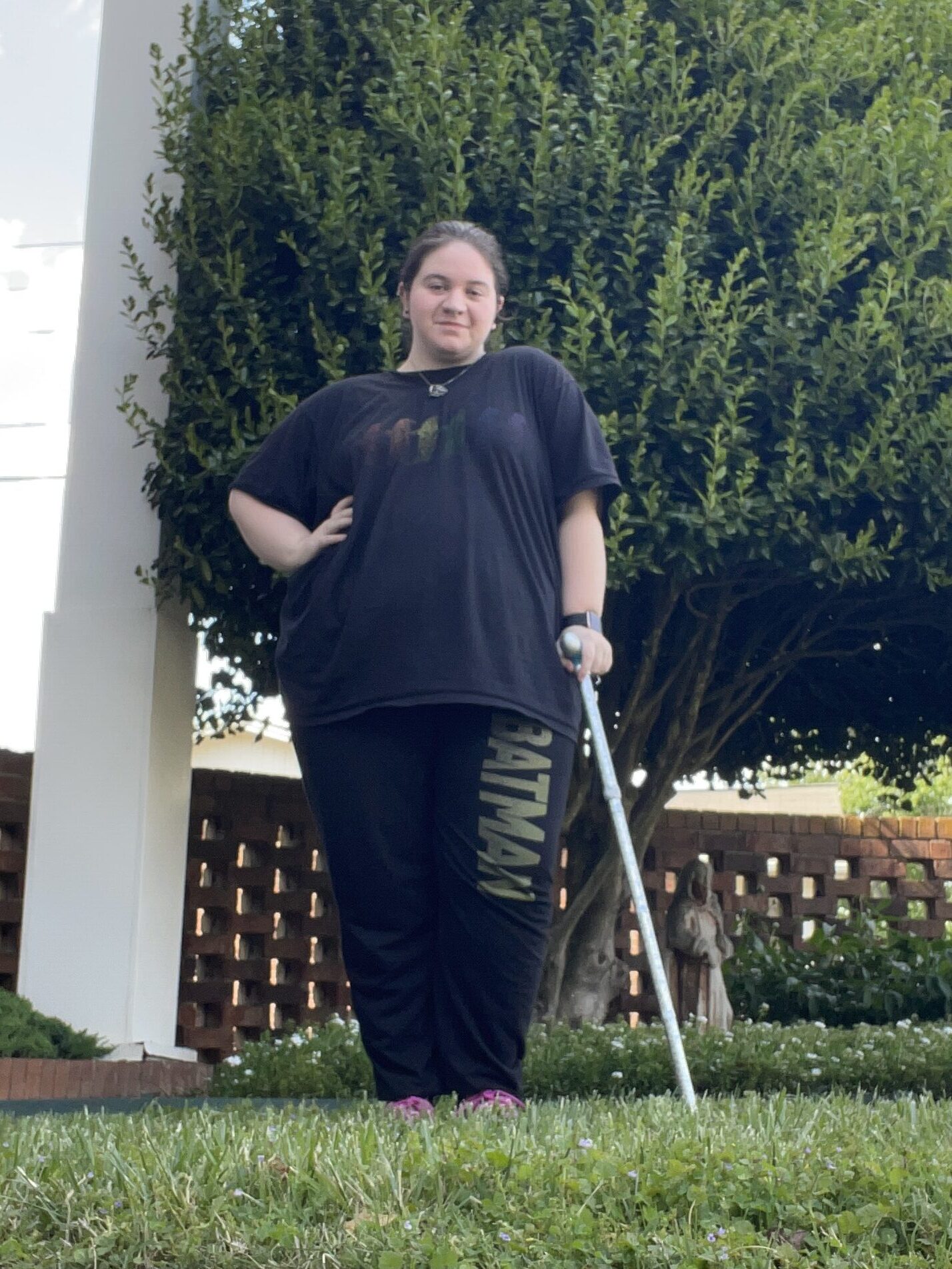
Shuttleworth will be a junior once they return from medical leave. They are majoring in Anthropology with a concentration in Forensic Anthropology. They entered WCU in summer 2021 after transferring from Challenger Early College High School in Hickory, NC.
Because of the chronic pain, they started using a cane in September of 2021. They also suffer from an undiagnosed invisible autoimmune disorder, meaning the doctors have yet to figure out the diagnosis.
When Shuttleworth was 8 or 9 years old, they started showing symptoms while in gym and evening dance class at Norwood Elementary in Stonewood, WV. It was brushed off as severe asthma, growing pains, and obesity. These excuses were used for a few years until a visit to their rheumatologist in late 2020, when Shuttleworth’s autoimmune and chronic illness symptoms became more apparent.
The doctor suspects Shuttleworth may have hEDS (hypermobile type Ehlers-Danlos syndrome) and Sjogren’s. However, it is difficult to diagnose because the criteria could take years to be conclusive.
HEDS affects skin, joints, and blood vessels with symptoms of easy bruising, over-flexible joints, and breakage/dilation of blood vessels. Sjogren is a systemic disorder that targets the autoimmune system and progresses over time.
It was later discovered that Shuttleworth’s health issues are partially hereditary. Many of their symptoms mirror the same as their mother’s since she has Sjogren’s, Dysautonomia, and Psoriatic Arthritis/Rheumatoid. Dysautonomia is a group of autonomic nervous systems disorders and Psoriatic Arthritis/Rheumatoid are autoimmune diseases that cause joint damage.
Autoimmune disorders generally progress over time. Since the summer of 2021, Shuttleworth has been experiencing more chronic pain, which has affected their mobility and academic life.
Being queer and disabled
Shuttleworth says being openly queer and disabled contributes to the treatment they get daily. They express that being queer and disabled makes you a big target, especially in this area of the state. They also comment on how people tend to be homophobic and ignorant of disabled people since that is what children grow up around these days.
Another WCU student who wanted to stay anonymous experienced the same issues as Shuttleworth when it comes to ableism on campus. They wanted to stay anonymous because of fear of backlash and harassment. Their experience is like Shuttleworth – queer, first year, and having disabilities.
In October 2021, their cane was stolen when they went to the bathroom. They also had a book and a soda sitting on the bench, but only the cane was gone. The incident wasn’t officially reported, but faculty were informed.
They believe that queer disabled people are more visible to the public versus cisgender heterosexual disabled individuals which causes more ableism for the disabled community.
WCU is challenging for navigation
Over the Fall 2021 break, the CAT trains on campus were not running and Shuttleworth was forced to walk to the Courtyard Café from Harrill every day. Although they were only eating one to two meals a day since they couldn’t make the walk down for every meal, the increased mobility caused a flare-up.
Shuttleworth’s professors are mostly accommodating and understand the struggle of chronic pain while sitting in class. Shuttleworth believes WCU has been accepting but is lacking disability awareness. There aren’t Everfi courses or training focused on ableism and the different forms it can take. Shuttleworth believes this shows on campus through the students.
Shuttleworth has faced ableism through social media from WCU students, especially on Yik Yak. WCU users have argued with them about the use of their cane and have called them a “cripple.” Another user threatened to take away their cane while saying “What would you do to stop me?”
“What mobility aids people use is none of your business unless you personally know them and want to support them better,” said Shuttleworth.
“WCU itself is a nightmare for accessibility to the point where it’s almost comedic,” explains our anonymous source.
In August last year, the source was walking to the Allen dorm when they had a sudden pain flare-up. They ended up lying on the sidewalk with someone they knew while throwing up in the bushes nearby.
The two called EMS to see if they could go to Balsam since the source was unable to move from their flare-up. However, EMS informed them that they could either take the CAT tran or EMS could take them to a CAT tran stop because EMS was not allowed to go to the Balsam dorm parking lot.
“For context, EMS regularly parks in the Balsam parking lot,” said the source.
They called Health Services to see if they could notify their professors or provide the source with a note/email they could send. Health Services said they had to walk to Bird for this service even though they explain that walking is hard.
WCJ followed up with EMS on campus and in an email from December 2021, they said there is only transportation to Bird or Harris Hospital, but not to dorms or CAT tran stops. Their advice is to “call the campus emergency number (828-227-8911) to request EMS and we will do what we can to assist them and get them the help they need.”
What not to do and navigating resources
Shuttleworth explains WCU students’ attitudes towards people who use canes are caused by a mixture of ableism being normalized by society and general ignorance. Students who don’t care will only continue to enable ableism and make fun of disabled people unless they are educated.
“I shouldn’t have to beg people to be decent human beings!” Shuttleworth said.
Shuttleworth stresses the point of educating yourself since people with disabilities are just like everyone else but just live a different way. A cane is an extension of their body and needs to do the task for them that they cannot do on their own.
They list common actions people do that they wish they wouldn’t. One of them is staring while using the cane. They understand the curiosity, but it mostly feels “invasive and creepy” in Shuttleworth’s opinion.
Another is walking closely behind them while using their cane. Shuttleworth wants others to know that it isn’t rude to go around since they know it might take a little more time for them to walk than normal. Shuttleworth experiences this daily on the stairs and sidewalk.
“My biggest issue is the ignorance people have regarding how variable invisible illness can be day-to-day and how we can still do things like run, dance, etc., it just takes a huge amount of pain and effort,” the anonymous source said.
Hear what Associate Dean of College of Education and Allied Professions (CEAP) Dr. Patricia Bricker has to say about accessibility, navigating departments/campus, and what WCU is working on to help disabled students.
Director of Office of Accessibility Resources (OAR) Dr. Jadarious Jackson said in a Zoom interview that although their office didn’t know about the incidents happening, OAR is always open for students and will try to help.
Another resource is Disabled Students United (DSU), a club that is advocating for better accessibility and a support group for disabled students.
Dr. Bricker recommends several resources for disabled students on campus like speaking to OAR, Counseling and Psychological Services (CAPS), faculty advisors, or even the nearest office such as the Dean’s office in Killian.
“You should be able to come to school and feel safe… be safe, not just feel safe. Safe has different meanings, but that includes not being bullied,” said Dr. Bricker.
What now?
For now, Shuttleworth is educating and advocating for themselves and others. They have a Tik Tok, @lennoxaedanx, where they post about their cane, being queer, and more. Tik Tok is where they found most of their information when looking for a cane. It also gives them the confidence they have now from watching other creators embracing their mobility aids.
They have taken control of their identity and are learning to no longer feel ashamed of their health issues. They note it is a long process, but they are actively learning.
Although Shuttleworth doesn’t know when they are coming back, they are currently working with WCU Health Services towards getting accommodations for academic reasons like the choice of virtual classes, doing an alternate assignment, or having someone record the class.
“I hope that other students and staff are better educated enough to be sensitive about disabilities,” said Shuttleworth over the phone. Although they can/did advocate for themselves, they can only get so far and need more help from the school. They believe that a start of changes from different departments shows disabled students that there is a possibility for a better future at WCU.
